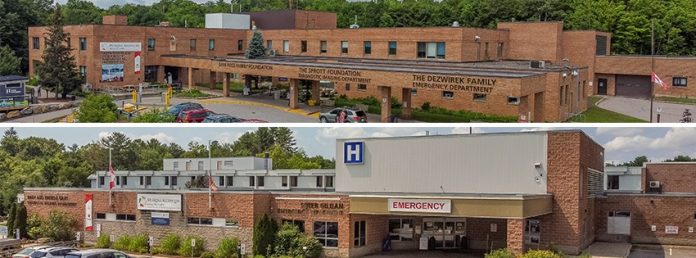Muskoka Algonquin Healthcare (MAHC) is feeling the pressure of capacity challenges at both sites and is taking steps to address the gridlock.
“MAHC has been experiencing surging volumes for weeks with occupancy rates reaching over 150% this week. That means our beds are full and we are caring for admitted patients wherever we can find space to,” says Diane George, Vice President of Integrated Care, Patient Services & Quality. “Our teams have been working incredibly hard under increased pressure in every department of the hospitals. We are not unlike many hospitals across the province grappling with dramatic surges and ongoing staffing challenges.”
During unprecedented occupancy, the organization follows a surge plan and engages local health care partners in potential solutions. MAHC appreciates the support of our local paramedic services, partner hospitals in North Simcoe Muskoka, and local agencies involved in the Muskoka and Area Ontario Health Team.
“We are here for our communities 24 hours a day, seven days a week, and we want people to understand the capacity challenges and the higher demand that we are currently working through,” says George. “The increased workload is taking its toll on our staff and physicians as our people are working exceptionally hard in these circumstances. We appreciate everyone’s patience and when the wait is longer than usual, understand that our staff and physicians have been putting in long hours so that they can be here for you, and you will be seen. My sincere thanks to all members of the MAHC team for the hard work and extra hours and effort.”
Hospitals are unique in that the doors are always open and people are never turned away. Meanwhile the public can do its part to choose the most appropriate option for care in the right place at the right time by the right provider to conserve emergency department capacity for real emergencies.
The #WheretoGetCareMuskoka information resource continues to be available to the public at www.mahc.ca/wheretogetcareMuskoka with primary care reminders, walk-in clinic options, and web links to virtual care options and community-based resources and options for mental health.
“We want people to do their part by supporting our healthcare workers, getting informed about their options for care, and choosing responsibly to help support their community hospitals during difficult times,” says George.








